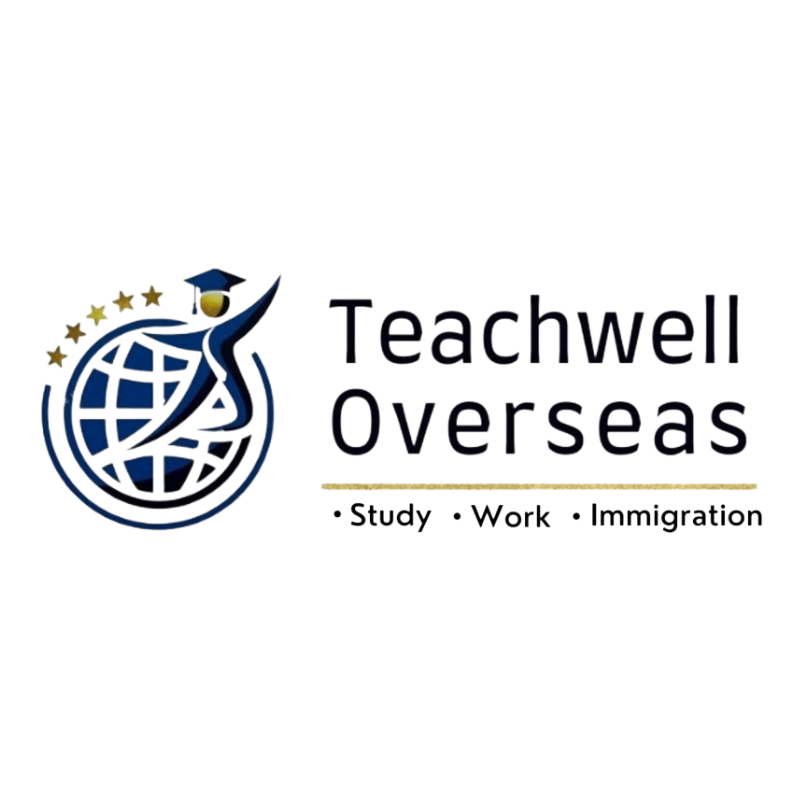
Australia has become a top destination for international students seeking a world-class education, a vibrant cultural experience, and promising career opportunities. With its globally recognized universities, diverse and inclusive society, and stunning landscapes, Australia offers more than just an academic journey—it provides a life-changing experience. Whether you’re drawn to its cutting-edge research facilities, the chance to work while studying, or simply the adventure of living in a new country, Australia has something for everyone.
Australia has a variety of options if you want to accelerate your career, pursue a top-notch degree, or continue your education. In terms of academic excellence, support for international students, and level of life, Australia stands out, regardless of your choice to pursue an MBA, engineering degree, humanities degree, or English language course.
In this comprehensive guide, we’ll explore everything you need to know about studying in Australia, from scholarships and tuition fees to visa requirements and living costs. Whether you’re just starting your research or are ready to apply, this guide will help you make informed decisions and pave the way for your academic success Down Under.

Australia is home to some of the world’s leading universities, known for their academic excellence, cutting-edge research, and vibrant campus life. Here are Group Eight Universities of Australia that consistently rank high on global scales and attract students from around the world:
- University of Melbourne (Melbourne, Victoria)
- University of Sydney (Sydney, NSW)
- University of New South Wales (Sydney, NSW)
- Australian National University (ANU) (Canberra, Australia Capital Territory)
- Monash University
- University of Queensland (UQ) (Brisbane, Queensland)
- University of Western Australia (Perth, Western Australia)
- University of Adelaide (Adelaide)
When selecting a course and institution for your studies, several key factors should be considered to ensure you make the best choice for your academic and career goals. Here are some essential factors to consider:
- Course Content and Structure: When evaluating a course, examine its content and structure to ensure it aligns with your interests and career goals. Review the curriculum to confirm it covers essential topics and offers relevant specializations or electives. Consider the balance between theoretical lectures, practical experience, and online components. A well-structured course should provide a comprehensive learning experience that prepares you effectively for your chosen field.
- Institution Reputation and Ranking: Institution reputation and ranking are crucial factors when choosing a university. High rankings and a strong reputation often reflect the quality of education, research output, and industry connections. Check global and national rankings, and ensure relevant professional bodies accredit the institution. A well-regarded institution can enhance your degree’s value and improve your job prospects.
- Location and Campus Life: Location and campus are crucial factors in shaping your university experience. Consider the city’s climate, cost of living, and lifestyle to ensure it fits your preferences. Evaluate the campus facilities, such as libraries, labs, and recreational areas, and explore student life, including clubs, events, and support services. A vibrant campus and a supportive environment can greatly enhance your academic and social experience.
- Cost and Financial Aid: Cost and financial aid are essential factors when selecting a course and institution. Compare tuition fees and additional costs associated with the program. Investigate available scholarships, grants, and financial aid options that can help offset expenses. Understanding the financial aspects and available support can help you manage your budget and make education more affordable.
- Entry Requirements and Admission Criteria: Entry requirements and admission criteria are key to ensuring you qualify for your desired program. Review the academic qualifications, prerequisites, and standardized test scores or interviews needed for admission. Also, consider any language proficiency requirements, such as IELTS or TOEFL scores. Meeting these criteria is essential for a successful application and to ensure the program aligns with your academic background and skills.

- General Eligibility Criteria: General eligibility criteria for university programs include completing the required educational background, such as a high school diploma for undergraduates or an undergraduate degree for postgraduates. For specific programs, you may need to meet subject prerequisites and minimum grade requirements. Some programs also require standardized test scores, such as SAT, GMAT, or GRE, and relevant work or research experience for advanced degrees.
- Specific Program Requirements and Prerequisites: Specific program requirements and prerequisites vary by course and institution. Undergraduate programs may require certain high school streams subjects or minimum grades in relevant subjects. Postgraduate programs typically need a related undergraduate degree, relevant work experience, or a research proposal. These requirements ensure that candidates have the necessary background and skills for successful study in their chosen field.
- English Language Proficiency Tests and Minimum Score Requirements: English language proficiency tests, such as IELTS, TOEFL, and PTE, are often required to demonstrate language skills for non-native speakers. Minimum score requirements generally include:
IELTS: Around 6.5-7.0 overall, with no band lower than 6.0.
TOEFL: Approximately 80-100 total, with minimum scores in each section.
PTE: Typically, 58-65 overall.
Requirements can vary by program and institution, so it’s important to check specific criteria for your desired course.

- Government Scholarships: Government scholarships for international students offer financial support to study abroad and are typically funded by national governments to promote global education and development. Key examples include the Australia Awards Scholarships, which provide funding for students from developing countries to study in Australia, and the Destination Australia Program, which supports students studying in regional areas of Australia. These scholarships often cover tuition fees, living expenses, and sometimes travel costs, aiming to help talented students access high-quality education while fostering international ties.
- University-Specific Scholarships: University-specific scholarships are financial awards offered by individual universities to attract and support outstanding students. For example, the University of Melbourne International Undergraduate Scholarships provide merit-based funding for high-achieving international students, while the Monash International Leadership Scholarship offers both financial support and leadership development opportunities. Similarly, the ANU Chancellor’s International Scholarship helps exceptional international students with their studies. These scholarships often cover tuition fees and sometimes living expenses, and they are designed to recognize and reward academic excellence and potential.
- Private and External Scholarships: Private and external scholarships are financial awards funded by organizations outside of universities and governments, such as non-profits, corporations, and foundations. Examples include the Endeavour Postgraduate Scholarship Awards, which support high-achieving international students pursuing postgraduate studies, and the Rotary Peace Fellowship, which funds students focused on peace and conflict resolution. These scholarships can cover various expenses, including tuition, living costs, and travel, and are often aimed at specific fields of study or demographic groups. They provide additional opportunities for financial aid and can be highly competitive.
- Undergraduate Programs: Tuition fees typically range from AUD 20,000 to AUD 45,000 per year, depending on the program and institution. Programs in fields like medicine and engineering are often more expensive compared to the arts or humanities.
- Postgraduate Programs: Fees for master’s programs usually range from AUD 22,000 to AUD 50,000 per year, while research degrees can vary widely based on the field and duration, often between AUD 25,000 and AUD 55,000 annually.
- Scholarships and Grants: Many universities and organizations offer scholarships and grants based on merit, need, or specific criteria. Research the available scholarships and apply early.
- Student Loans: Australian students may access government-supported student loans such as HECS-HELP or FEE-HELP, which are repaid based on income. International students may need to explore private loan options or loans from their home country.
- Work Opportunities: Consider part-time work options permitted by your student visa to help cover living expenses. Many universities offer on-campus jobs or career services to assist with job placement.
Studying in Australia presents an exciting opportunity, but careful planning is essential. To ensure a successful experience, start by thoroughly researching universities and programs to find the best fit for your academic and career goals. Understand the tuition fees and budget for additional costs like textbooks and living expenses. Explore available scholarships and financial aid options to help manage expenses effectively.
Be sure to consider various accommodation options and plan your budget to cover all living costs. Utilize resources such as university career services, scholarship databases, and student support networks to maximize your opportunities.
Taking these steps will help you navigate the process smoothly and make the most of your educational journey in Australia. Embrace the opportunity to explore a new culture, gain a world-class education, and build valuable connections for your future.
Q-1: What are the general entry requirements for studying in Australia?
Generally, entry requirements include completing the equivalent of Australian secondary education for undergraduate programs or having a relevant undergraduate degree for postgraduate programs. Specific prerequisites may vary by program and may include standardized test scores, language proficiency tests, and relevant work experience.
Q-2: What accommodation options are available for international students?
Options include on-campus housing, shared apartments, private rentals, and homestays. On-campus accommodation often includes utilities, while shared apartments and homestays can be more budget-friendly.
Q-3: How do I apply for a student visa to Australia?
Apply online through the Australian Department of Home Affairs. You’ll need to provide proof of acceptance into a recognized educational institution, evidence of sufficient funds, and health and character checks.
Q-4: Are there part-time work opportunities for international students in Australia?
Yes, international students on a valid student visa can work part-time 24 hours per week during the academic year and 48 hours per week full-time during breaks. It’s a good way to gain experience and help cover living expenses.
